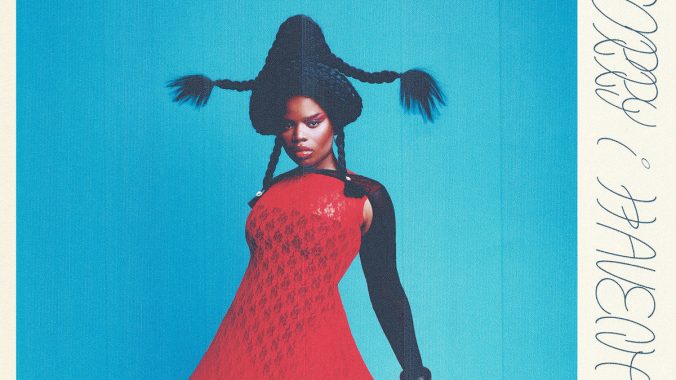Vagabon Dances Into Catharsis on Sorry I Haven’t Called
The New York singer/songwriter channels exploratory instincts and creative restlessness on her third album

Relationships are hard: All of the uncertainty and insecurity that comes with the first flush of love; or the feeling that, even though you want something to end, you can’t stand the thought of the ex in the arms of another; or the friend that you care for way too much but don’t know how to let them know. And then, there’s the letters you’ve written in your head but have never committed to paper—the letters that try to explain why you behaved a certain way, at a certain time. The letters that are supposed to articulate everything you feel but can’t say out loud. Vagabon’s—aka Laetitia Tamko—third album, Sorry I Haven’t Called, is about confronting these situations and others beyond. Just look at the title—it’s one of those universal phrases that means so much more than the sum of its words.
The world has changed almost beyond recognition since Tamko’s 2017 debut album Infinite Worlds, and Vagabon has changed with it. Chiseled from an indie rock template, Infinite Worlds was a study in blending wistful, breathy vocals with loud-quiet guitar distortions. The collection was well-received, and Vagabon could have easily settled into the indie groove and never looked back. She didn’t, though. Her self-titled follow-up in 2019 took a sideways leap into orchestrally enriched electronica. Signed to the Nonesuch label, Vagabon won plaudits for its scope and ambition, and it and its predecesssor showcased Tamko’s ability to interrogate her own feelings and turn the responses into captivating, enveloping music. Sorry I Haven’t Called signals another Vagabon genre switch, this time towards house-inflected, ethereal pop. Furthermore, having produced the first two Vagabon albums herself, Tamko has turned to ex-Vampire Weekender and HAIM producer Rostam Batmanglij to help her realize parts of her new project.
Sorry I Haven’t Called is informed, at least in part, by the death of one of Tamko’s best friends in 2021. As with any major trauma, the grief she experienced in the aftermath provided new clarity in other sectors of her emotional spectrum. Things that once seemed utterly important are now less so—and the really crucial stuff, the companions you choose (and how you navigate life with and without them), rises to the top. The album’s opener, “Can I Talk My Shit?,” dives right in, tackling the vexed question of when is the right time to move in with a new partner. Or is there ever a right time? Next, over skittering beats, Tamko uses “Carpenter” to purr that she’s thrown away the past and is ready to commit to a new lover, while “You Know How” reflects on taking a friendship to the next level (and how no one else needs to know). “Lexicon” is a deep-sighing admission to missing somebody dear.
-

-

-

-

-

-

-

-

-

-

-

-

-

-

-

-

-

-

-

-

-

-

-

-

-

-

-

-

-

-

-

-

-

-

-

-

-

-

-

-








































